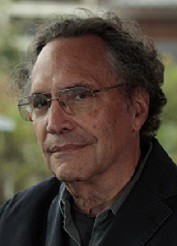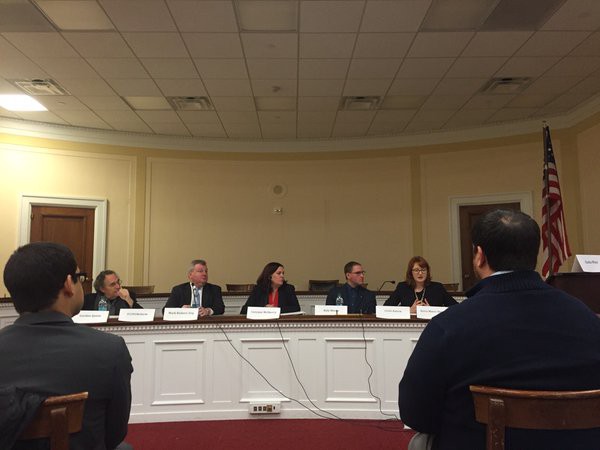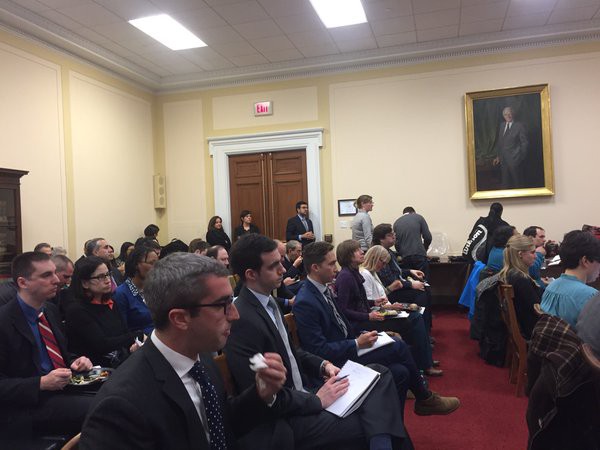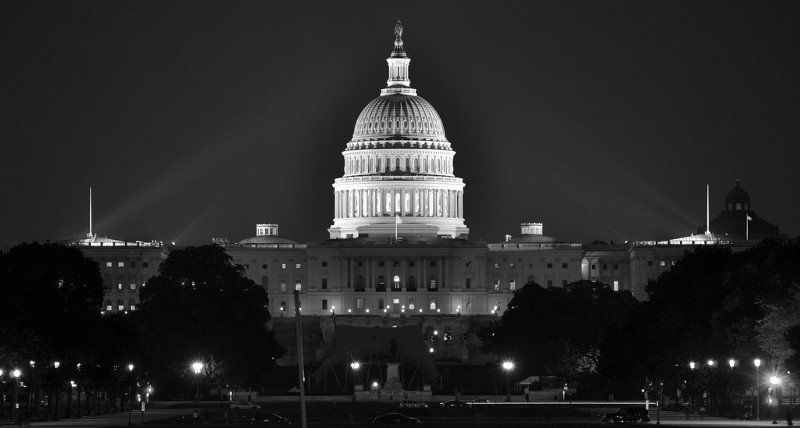By Courtney Duffy on February 17th, 2016
Lights, Camera, (Political) Action!
Courtney Duffy continues the #CopyrightWithCourtney blog series with a post on a recent advocacy visit to DC by a Fractured Atlas member. You’ll find additional posts in the series here, and join the conversation with Courtney on Twitter @cduffy90.

Last month, I had the privilege of hosting acclaimed documentary filmmaker and Fractured Atlas member Gordon Quinn here in Washington, D.C. The founder and Artistic Director of Chicago-based Kartemquin Films, Gordon has long been a leader within the documentary filmmaking field when it comes to intellectual property and fair use — you can read more about his background in this November blog post.
Gordon and I were advocating members of Congress to fix a section of the 1998 Digital Millennium Copyright Act that makes it illegal to break a digital lock to access a copyrighted work. Although it was created with the intention of protecting this work from piracy, this section of the DMCA doesn’t distinguish between pirates and those whose plans for the copyrighted work would not infringe its copyright whatsoever.
Although the Copyright Office does have a process in place by which every three years individuals and organizations can petition for an exemption to this section of the DMCA, it is incredibly burdensome. Documentary filmmakers like Gordon, who could not do their jobs without breaking digital locks to access copyrighted works and legally incorporate them into their films, have to devote valuable time and resources to filing for this exemption every three years — and make their case from scratch each time.
Documentary filmmaking is not the only industry that is impacted by this DMCA provision. To illustrate its wide-ranging impact, our friends at Public Knowledge teamed up with the office of Congressman Blake Farenthold (TX-27) to sponsor a briefing on Capitol Hill featuring panelists from some of the different industries that are burdened by the current exemption process. Gordon sat on the panel as a representative of the arts community, and he was joined by Mark Richert, Esq. from the American Foundation for the Blind,Corynne McSheery from the Electronic Frontier Foundation, and Kyle Wiens from iFixit.

While the panel was open to members of the media and general public, its primary goal was to bring Congressional staffers up to speed on the issue so that future legislation will get to the heart of the issue and offer a solution to the problem. As you’ll see in the photo below, the event was very well-attended, with approximately 60 people in the audience. There was an active social media conversation going on during the event and in the subsequent days, as well, under #1201Reform.

Gordon was the first of three Fractured Atlas members to join me in Washington for advocacy over the past month. In my next posts, I’ll detail my experiences visiting Congressional offices with Gordon, in addition to hosting other members on the Hill for an event on the arts that was sponsored by the Congressional Maker Caucus. Stay tuned!

